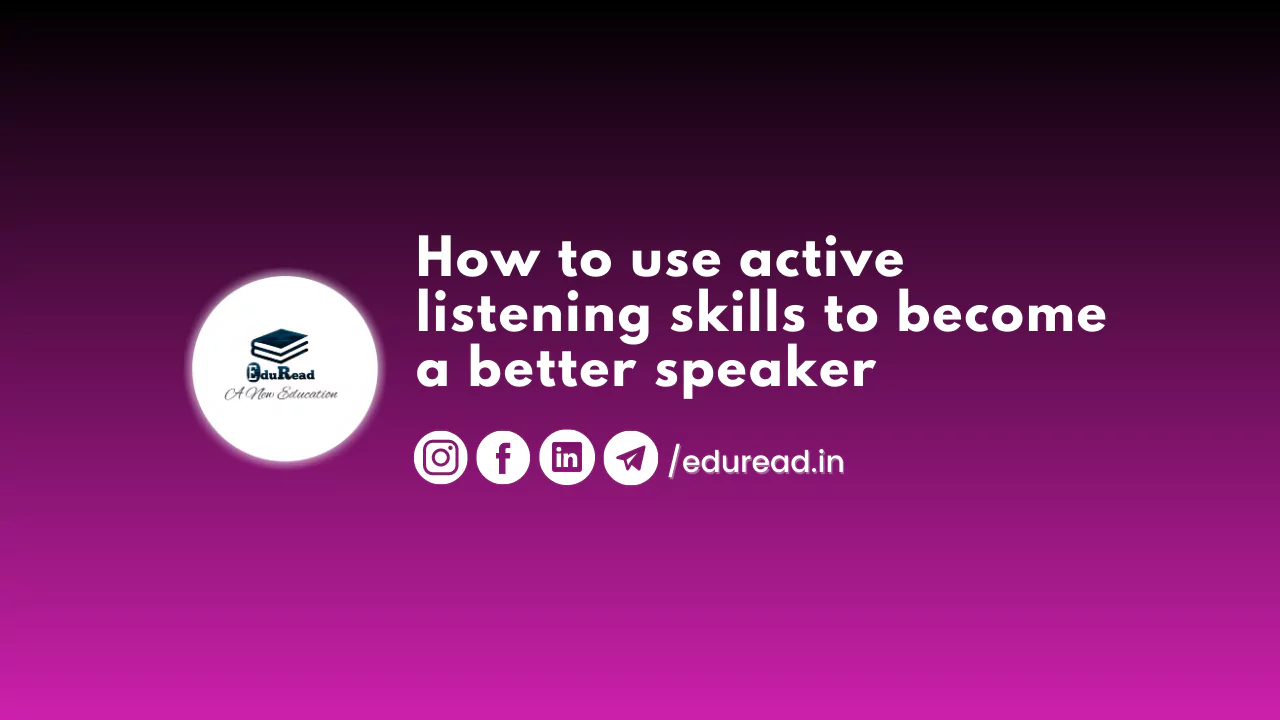As a speaker, your ability to actively listen to your audience is crucial. Active listening involves fully engaging with the person speaking and focusing on understanding their message. By developing active listening skills, you can become a more effective communicator. In this blog post, we’ll explore the benefits of active listening and provide strategies for developing these skills.
Section 1: The Benefits of Active Listening
Active listening can help you become a more effective speaker by:
- Building trust: When you actively listen to your audience, they feel heard and valued, which can help build trust.
- Enhancing understanding: By focusing on understanding the speaker’s message, you can improve your comprehension and respond more effectively.
- Improving communication: Active listening can help you avoid misunderstandings and improve your ability to communicate with others.
Section 2: Strategies for Developing Active Listening Skills
Here are some strategies for developing active listening skills:
- Pay Attention
To actively listen, you need to be fully present and focused on the speaker. Avoid distractions, such as checking your phone or looking around the room. Instead, maintain eye contact and give your full attention to the speaker.
- Show Interest
Demonstrate your interest in the speaker and their message. Ask questions, provide feedback, and engage in the conversation. This will help the speaker feel heard and valued.
- Provide Feedback
Offer feedback to the speaker to demonstrate your understanding and engagement. You can do this by paraphrasing their message or asking clarifying questions. This will help you ensure that you understand the speaker’s message.
- Practice Empathy
To actively listen, you need to put yourself in the speaker’s shoes and understand their perspective. Practice empathy by imagining yourself in their situation and considering their feelings and experiences.
- Avoid Interruptions
Interrupting the speaker can be distracting and disrespectful. Instead, wait for the speaker to finish their message before responding. This will help you avoid misunderstandings and demonstrate respect for the speaker.
- Use Positive Body Language
Your body language can communicate your interest and engagement in the conversation. Use positive body language, such as nodding, smiling, and maintaining eye contact, to show your engagement and interest.
- Practice Mindfulness
Mindfulness can help you be fully present and focused on the conversation. Practice mindfulness by taking deep breaths, focusing on your senses, and avoiding distractions.
Section 3: Applying Active Listening Skills to Speaking
Active listening skills can be applied to speaking in several ways:
- Tailoring Your Message
By actively listening to your audience, you can tailor your message to their needs and interests. This will help you communicate more effectively and engage your audience.
- Responding Effectively
Active listening can help you respond more effectively to your audience. By fully understanding their message, you can provide a thoughtful and appropriate response.
- Demonstrating Respect
Active listening demonstrates respect for your audience. By showing that you value their perspective and opinions, you can build trust and improve your communication.
Conclusion
Active listening is a crucial skill for becoming a better speaker. By fully engaging with your audience, focusing on understanding their message, and responding effectively, you can improve your communication and build stronger relationships. By practicing the strategies outlined in this post, you can develop your active listening skills and become a more effective communicator.
Follow Us for more such content to improve your speaking skills:
To know more, check out here: https://eduread.in/using-do-does-did-correctly-speak-new-york/
And visit us for more.
